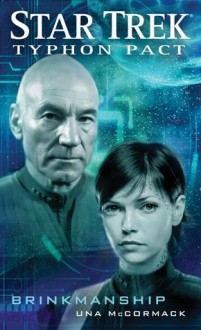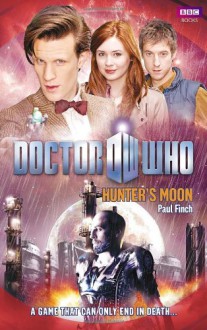
Just as a report about war crimes during the occupation of Bajor is published on Cardassia, Pulaski and Alden come to visit - and are embroiled in internal politics, kidnapping and the attempt at defamation of Natima Lang, the next hopeful for head of the Cardassian Union's university.
I love McCormack's Cardassia, it's rich, well-nuanced, and her Garak is to die for, pure and simple. 15 years have passed since the end of the Dominion War and Cardassia is on a good way to becoming a lasting democracy. One important step is facing its own role in past events, like the occupation of Bajor, and its consequences - in this case putting criminals on trial. But the situation is still unstable enough that accusations against a popular figure might put democracy as a whole in danger. And this knife's edge comes through beautifully. However, ultimately, as long as Garak's in power I simply don't quite see any serious threat to Cardassia's fledgling democracy. He's too vigilant and circumspect - but after his term, I guess all hands are off. For we know a young democracy is most in danger of falling back into old authoritarian patterns when people begin to feel safe and stop paying attention.
Garak's own position is, of course, rather unique; he was a member of the Order back on Bajor, did his own share of criminal acts, has always frowned upon democracy and the rule of law - but keeps steering Cardassia on the right path. Of course, he has his agenda, of course, he keeps secrets, and I think Garak wouldn't be Garak if he didn't, but he's the one character who has changed most consistently throughout TV and treklit, and having him as the strongest supporter of democracy now feels right and true. One thing I find really extraordinary is how drawn he seems to be to doctors, as in Parmak, as in Bashir who have always acted as some sort of moral compass for him. Just one thing: How long is the castellan's term? And can't Garak be reelected for another term?
As for Bashir: Since I haven't yet read "Section 31: Control" I don't know what happened there, but just the few little scenes (the last one with Garak especially moving) have moved that novel up quite a few spots in my to-read list.
As much as I love McCormack's portrayal of Cardassia, I really can't relate to her Pulaski who smells conspiracies and shows prejudice whereever she goes. She's annoying as hell, and even if she doesn't care about diplomacy she's old and experienced enough to realize when to speak and what to say (and in what way). So her blunder with Garak and the media is a bit tiresome. But I like Alden - so he should keep popping up in McCormack's novels, but please spare me Pulaski!
Overall, another solid entry about Cardassia - nowhere near Never-Ending Sacrifice or Crimson Shadow, but still an entertaining glimpse into Garak's reign as castellan.
As a sidenote: Apparently, this novel is meant to be set 3 years into Garak's term as is mentionned multiple times within the narrative (which makes sense, given the various changes and developments Garak's pushed through since), but the historian's note has it set one year after Crimson Shadow... well, since TrekLit doesn't have the license to move beyond 2387 (the Romulan supernova), they've certainly hit a bit of an obstacle here.


 Log in with Facebook
Log in with Facebook 









